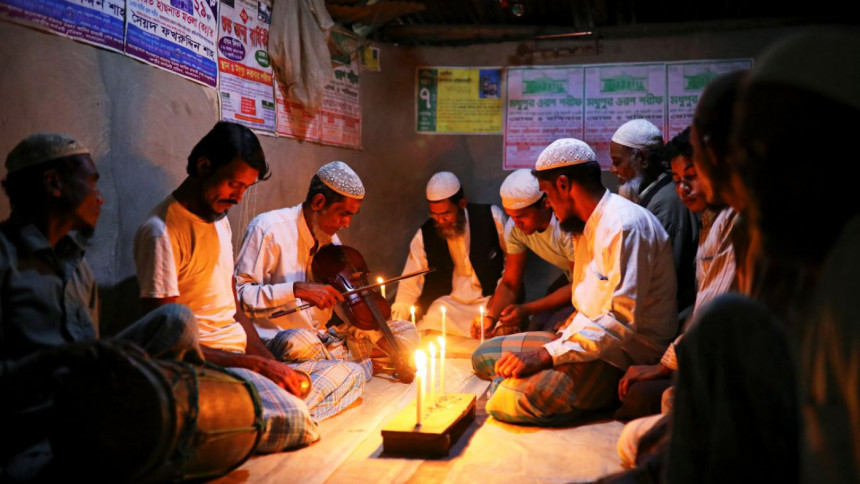Rohingya Repatriation: Many twists and turns but no solution in sight yet

There are over a million Rohingya refugees in Bangladesh, including the latest batch of 800,000 that came after August 25, 2017 and the 250,000 that arrived since the first exodus of mid-1990s. As Myanmar nationals, the Rohingya Muslims have historically faced ethnic and religious persecutions, culminating in 2017 in a fierce, protracted genocidal campaign by the Myanmar army against its own people. The military launched a violent crackdown leading to arbitrary killings of Rohingyas, including children and the elderly, gang rapes of women, inhuman torture, and razing of village after village that forced all those people to seek shelter in Bangladesh, unleashing a humanitarian crisis unprecedented in recent history.
In the last two years, there have been many twists and turns concerning the repatriation of the Rohingya refugees to their homeland. For instance, first, the agreement signed in November 2017 for repatriation did not work due to the unwillingness of the Myanmar government to recognise the rights and citizenship of the Rohingya Muslims. Second, Myanmar imposed an unfair screening and verification process to eliminate the so-called illegal Bengali Rohingyas from the list of returnees. Third, in November 2018, a much-publicised repatriation bid for some 2,000 families was stalled after the refugees refused to return for fear of fresh persecutions and confinement in the newly-built camps across the border in Rakhine State. The repatriation bid was later abandoned and rescheduled for 2019. Fourth, the planned relocation of 100,000 Rohingyas to Bhasan Char appears to have met with scepticism as there are no voluntary takers among the refugees for such a remote home on an island char. Finally, according to an UN official, the repatriation plan is now at a "total standstill."
With no plausible solution to the refugee crisis in sight, there are growing concerns in Dhaka and among the host communities in Cox's Bazar, who have been severely impacted by the presence of such a large number of outsiders in their neighbourhoods. There is an equally increasing disquiet among government officials at different levels about the future of the refugee situation. The challenge is to find the right balance between the official rhetoric calling for a speedy return of the Rohingyas and any long-term plans for them in Cox's Bazar camps, supported largely by external aid and assistance. The ongoing initiatives for more durable houses, improved roads, solar street lamps, training and employment for women, markets/shops within the camps, and finally provisions for schools for the kids are all indications of a much longer—or even permanent—stay. Given the continued military atrocities against the Rohingyas inside Myanmar, the refugees in Cox's Bazar are not going back to Myanmar any time soon. Aid workers, diplomats and humanitarian agencies working on long-term plans for improving camp conditions would not, however, publicly state this for fear of contradicting the official position.
At this point, despite constant diplomatic efforts by the government, there seems to be no hope for an immediate repatriation. Indeed, the Myanmar government seems least interested in the resolution of the crisis. The "clearance operation" is already done; the Myanmar military is sticking to their lies and deceptions, unwilling to give in to any demands of the international community. Even the strategy to send back the refugees to so-called designated "safe zones" inside Myanmar is not getting any ground; but if it does happen, which is unlikely, it will be tantamount to sending them to concentration camps and robbing them of their future rights and citizenships—which are their primary demands. There cannot be any safe zones in Myanmar unless the perpetrators of the Rohingya crisis, including the military generals, who committed crimes against humanity and genocide, are brought to justice.
The current scenario does not provide any sense of hope or relief for any returnees in Myanmar nor those stranded in camps in Bangladesh. The refugees are not allowed to work (although many sneak out to work); they can't leave the camp, open a bank account, and have a mobile phone (due to security reasons, although many have bought phones from local Bengalis who can have multiple phones); and children can't attend any Bengali school, which may lead, it is believed, to social and cultural integration. The present dense living conditions, poor quality of water and inadequate vaccination have left Rohingya refugees prone to many contagious diseases. As a result, both the refugees and the host communities in Cox's Bazar are reportedly vulnerable to serious health risks.
Meanwhile, the host communities are also becoming apprehensive of the long-term presence of the refugees and thus slowly turning hostile towards them. The concern is equally evident in Dhaka. At a recent meeting, leading economists and policy analysts have rejected the idea of providing the refugees with access to the local labour market; instead, they recommended their quick repatriation to ease pressures on Bangladesh because their presence has already posed serious threats to the local environment and population. Thus, any plan for a long-term stay or opening the door for resettlement and integration would lead to conflicts with local communities and raise a range of security issues for Bangladesh. A Rohingya diaspora in Bangladesh also means a second-class status of the Rohingyas and extinction of their cultures. Many refugees don't want this to happen. They want to return to their homes and re-establish their life on their ancestral lands with dignity and full rights as Myanmar nationals.
The Rohingya crisis has not run its course yet. Bangladesh government should continue to pursue voluntary, safe, and dignified repatriation of the Rohingyas to Myanmar. Since the UN finds the situation to be at a "total standstill", Bangladesh should look elsewhere and closely work with India and China for an acceptable resolution. India has not been friendly to the Rohingyas and never supported Bangladesh in any international forum to solve the protracted Rohingya crisis. Myanmar seems more important to India than Bangladesh due to India's economic and geopolitical interests. China has a strong grip on Myanmar at various levels, including the government and the military establishments. Bangladesh must seriously engage both China and India to find a resolution for a dignified return of the refugees. Until this happens, the crisis will continue and bring miseries to the refugee population as well as the host communities.
Mohammad Zaman is an international development/resettlement specialist and advisory professor at the National Research Centre for Resettlement (NRCR), Hohai University, Nanjing, China.
Email: mqzaman.bc@gmail.com


 For all latest news, follow The Daily Star's Google News channel.
For all latest news, follow The Daily Star's Google News channel. 



Comments